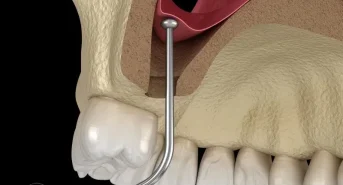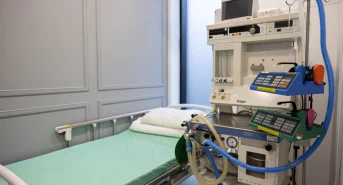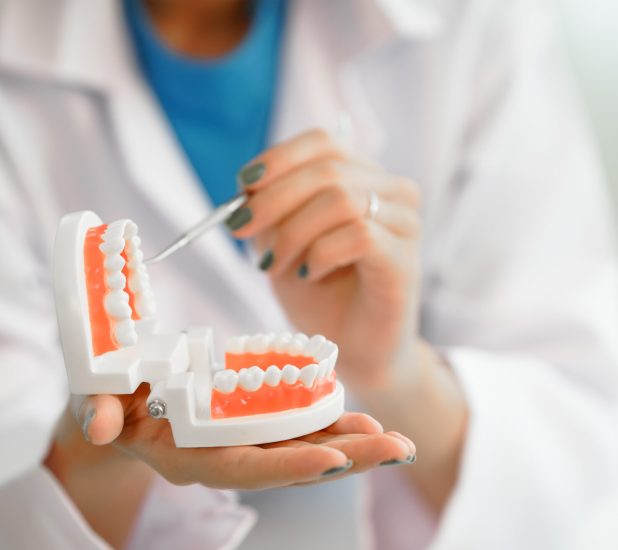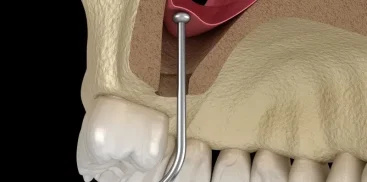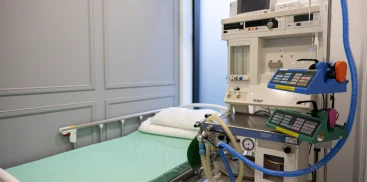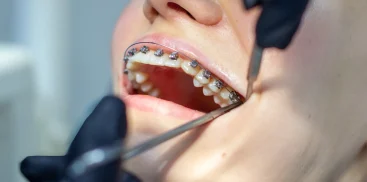The issue often lies not in obvious symptoms but rather hides behind imperceptible gums – we’re talking here about wisdom teeth. Imagine an elusive force causing pain, something you can’t immediately see or touch. This is often the misunderstood riddle of pain associated with wisdom teeth.
Gum Inflammation
Gum inflammation associated with the eruption of wisdom teeth, also known as pericoronitis, is a problem that can be not only painful but also potentially serious for oral health. When a wisdom tooth only partially erupts, it allows bacteria to settle in the gum tissues, leading to inflammation, swelling, and discomfort. This particularly affects teenagers and young adults as wisdom teeth often emerge during this stage of life.
Discomfort associated with pericoronitis can vary from dull to intense, even unbearable. If the wisdom tooth doesn’t fully erupt, a pocket forms, which becomes an ideal environment for bacterial growth, leading to chronic inflammation and gum pain. This is a problem that requires professional intervention to prevent worsening of the situation and potential negative consequences for overall oral health.
Treatment for pericoronitis often involves cleaning the infected bacterial pocket and potentially removing the wisdom tooth, which is the source of the problem. This way, further complications can be prevented, and comfort and oral health can be improved.
Infection (Pericoronal Abscess)
Accumulation of bacteria and food debris under the gum can lead to a serious problem – pericoronal abscess. This type of infection is usually more painful than standard inflammation as it forms a pocket filled with pus, a symptom of the body’s fight against infection. Pulsating pain may prompt an immediate visit to the dentist in search of relief. Unfortunately, traditional oral hygiene practices such as brushing or flossing often do not reach deep bacterial hideouts. Professional intervention thus becomes the only way to eliminate the infection.
Untreated abscesses can lead to serious consequences, including the possibility of spreading to other areas of the oral cavity and the body. In such situations, immediate dental intervention is necessary. Treatment may involve draining the abscess, using antibiotics to combat infection, and maintaining constant vigilance to prevent recurrences. In chronic cases or when standard methods fail, complete removal of the tooth, especially the wisdom tooth, may be necessary to cure the infection and prevent further pain.
Malocclusion
Achieving harmony in the mouth is often hindered by wisdom teeth, which disrupt the already crowded dental landscape. Improper eruption can cause tooth displacement, leading to potential problems such as jaw pain or bite disturbances.
Early action in cases of problematic wisdom teeth can prevent further complications that require more advanced treatment. Usually, the interfering wisdom tooth is removed to alleviate pressure on other teeth and avoid the need for complicated orthodontic intervention.
Excessive Number of Teeth
The appearance of wisdom teeth can overcrowd the oral cavity, leading to aesthetic problems and discomfort. Regular visits to the dentist can allow early detection of this problem, enabling appropriate preventive actions, such as wisdom teeth removal, to avoid further complications.
Decay
Wisdom teeth, due to their location in the back of the mouth, are prone to decay due to difficulties in maintaining hygiene. Treatment of wisdom tooth decay usually involves their removal, allowing the preservation of the health of neighboring teeth and preventing further damage.
Eruption Pressure
Erupting wisdom teeth can cause discomfort and pain associated with pressure on surrounding tissues. Early diagnosis and appropriate treatment, such as wisdom tooth extraction, can alleviate these symptoms and prevent complications.
Bone Resorption
Bone resorption around wisdom teeth can weaken the jaw structure and cause pain. Regular dental check-ups allow for early detection of this problem and prompt action, such as wisdom tooth extraction, to halt the resorption process.
Early intervention and regular dental care are important for maintaining oral health and integrity, especially concerning wisdom teeth. Preventive measures can prevent serious complications and improve patients’ quality of life.

